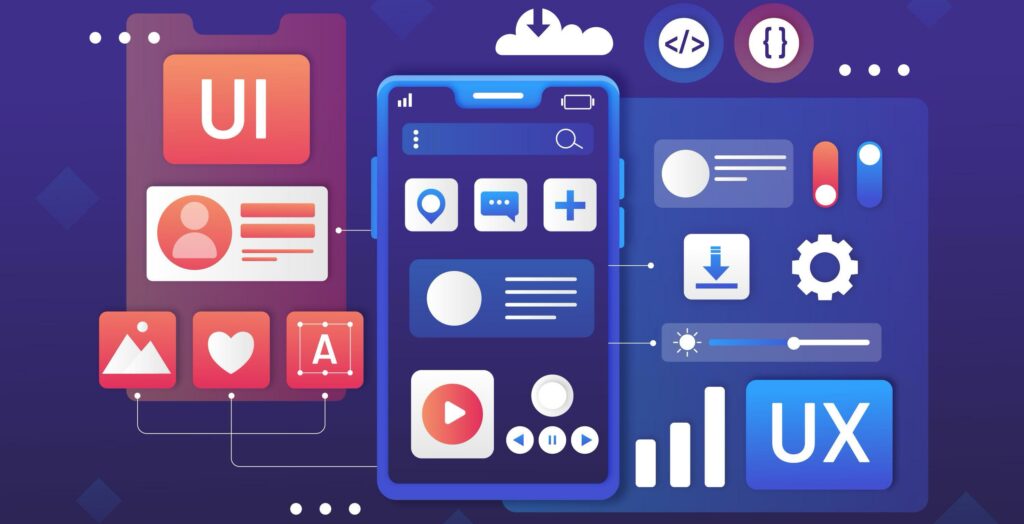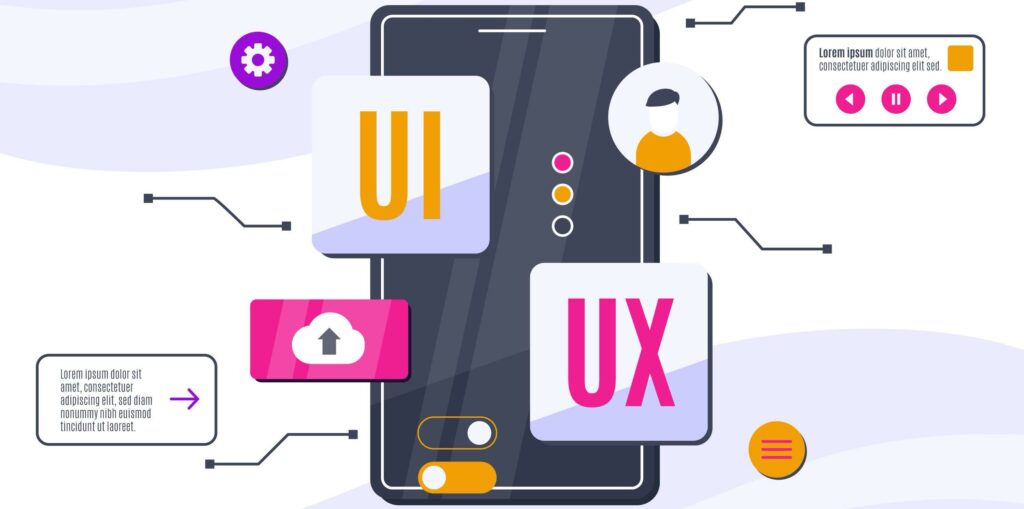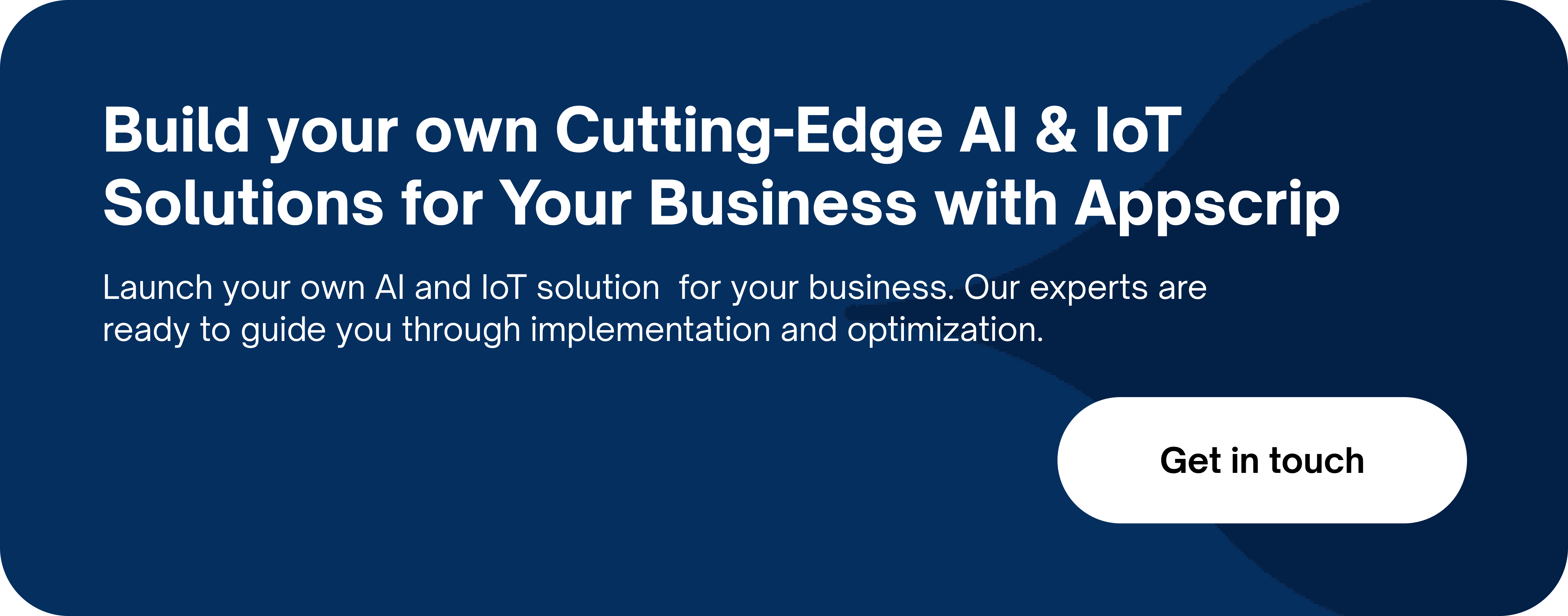Using AI has helped the mobile app development business stay competitive and flourish. With consistent year-over-year growth, the worldwide market for AI software is projected to reach a value of over USD 126 billion by 2025. For this reason, business owners are eager to use AI in the development of mobile apps. Read this blog if you’re also interested in learning more about AI for app development.
As a front-runner in the AI-powered mobile app development space, we explored and evaluated how to incorporate AI into the development of robust mobile apps. Learn everything you need to know about the function of AI in app development, the benefits of incorporating AI into app development, and how much it all costs in this comprehensive blog.
Benefits of AI-Powered Mobile App Development
The massive volumes of data collected by mobile apps make them ideal for the introduction of AI, which can then take full advantage of that online data. Companies shouldn’t let the fact that integrating AI into mobile apps is still in its infancy deter them from taking the plunge.
Improved User Interaction: With the support of AI, your solution’s user and customer interactions will become more natural. Basically, it will promote a more tailored experience. Intelligent algorithms enable sentiment analysis and emotion definition, which in turn forms more possibilities for service and product improvement.
Process Automation: Businesses may streamline their day-to-day operations with the help of mobile apps that integrate with enterprise software and use AI to automate repetitive tasks and cut down on human error. In the end, this automation gets rid of any room for mistake and produces very accurate results, which is crucial when working with data.
Improved Efficiency: Mobile apps driven by AI can often outperform humans in most tasks. Businesses can benefit from artificial intelligence in a variety of ways, including data processing, customer service, and workflow management.
If AI can enhance automation, improve the user experience, and provide intelligent interactions for web apps like ChatGPT, it certainly can do the same for mobile applications. There is an abundance of capabilities that AI can bring to mobile apps, like digital assistants, chatbots, tailored experiences, and improved security features.
Use Cases Of AI in Mobile Apps
Here are some of the use cases of AI in mobile apps.
Automated Chat
The mobile app market is very competitive. Therefore, it is crucial to prioritise a seamless user experience and top-notch assistance. Having an agent or agents available at all times will prove expensive.
So, chatbots powered by AI can be useful in this situation. These smart resources can automate the process of replying to customer inquiries through natural language processing in your mobile app. The system will automatically interpret the user’s query, retrieve the appropriate data, and present it to them in the most relevant and contextual way possible.
Chatbots powered by AI are among the most prevalent applications of AI today. Mostly because they help cut down on operational expenses for companies. Take Gartner’s prediction for 2026 as an example: conversational AI will save labour expenses for call centre agents by $80 billion.
Online Support
With the help of voice and speech recognition technology, virtual assistants can understand both the speaker’s voice and the content of their speech, allowing them to execute the necessary commands. This way, your users may interact with the software naturally, without using their fingers.
Using a virtual assistant can save you a ton of time, as expected. But they also have a benefit for those who want to use your app but can’t take their hands off the wheel or do anything else that requires them to be active. Including virtual assistants is essential if you want your app to be accessible to all users, especially those with disabilities, since speech recognition is crucial for them.
Artificial intelligence can also offer support when developing solutions to enhance internal operations, such as call centre performance. It has the ability to provide your sales staff with real-time discussion recommendations and dynamic call scripts. This allows staff to respond optimally to each customer’s needs by adjusting to each call.
Security and Privacy
App users are understandably worried about security, particularly when it comes to solutions that handle sensitive information digitally, such as mobile banking or online shopping.
To begin with, AI can detect possible cybersecurity threats and analyse massive volumes of data quickly, so it can inform you and your users before an attack even happens. Your app’s security will steadily increase over time due to the fact that highly-trained machine learning algorithms learn from their previous experiences.
By increasing the system’s efficiency and accuracy, AI can harden your app’s biometric authentication. One way to do this is by transforming data from biometric sources (such as fingerprints, face scans, etc.) into a form that can be stored and analysed.
Predictive Analytics
Analytics is a must-have for every company. Analysing performance, gaining insights on consumer behaviour, and improving service delivery is always crucial, regardless of your industry.
By using AI, your perspective on app analytics will be transformed forever. Smart algorithms will effortlessly sift through your customers’ usage data, allowing you to examine historical data and obtain insights into future outcomes.

Better personalization
Finally, customization must be mentioned in this list of use cases. The mobile app industry is quite competitive, as we mentioned earlier. Therefore, it is important to differentiate yourself from others. That is indeed possible with AI.
Create a solution that caters to each customer’s individual tastes by constantly monitoring their app use and evaluating it. As a result, they will have a great experience that will encourage them to come back.
Steps For Developing AI-Powered Mobile Apps
Developing AI-powered mobile apps is a complex process that requires careful planning and execution through various stages. Here are the details of each stage of the development process:
Strategy
- Identify the Problem: Figure out what problem or opportunity AI is going to solve.
- Define Objectives: Clearly outline what the app seeks to achieve.
- Market Research: Conduct market research to understand competition and target audience.
- Feasibility Study: Verify the AI application’s possible return on investment (ROI) and technical viability through a feasibility study.
Analysis and Planning
- Requirements: Gather comprehensive requirements data from relevant parties.
- Technology Stack Selection: Determine which programming languages, frameworks, and tools will be used.
- Resource Allocation: Allocate the necessary human and technical resources.
- Project Timeline: Create a project timeline that includes important milestones.
Machine Learning Process Sequence
- Data Collection: Collect and prepare the data that will be used to train the AI model.
- Model Selection: Pick the right machine learning algorithms.
- Training: Use the data that has been gathered to train the model.
- Evaluation: Adjust the model’s parameters based on your findings from the evaluation.
- Deployment: Integrate model for real-time use in the app.

UI/UX Design
- Wireframing: Design wireframes to describe the basic structure of the app.
- User Interface Design: Design the visual components of the app.
- User Experience Design: Plan the user journey in order to make the app easy to use. This is part of the user experience design process.
- Prototyping: Create a functional prototype to showcase the app’s features.
Development
- Frontend Development: Includes writing code for the app’s user interface.
- Backend Development: Development of the backend code, which includes the server, database, and app logic.
- AI Integration: Integrate the AI models with the app’s backend.
- API Development: Code APIs to facilitate app-to-backend data interchange.
Testing
- Unit Testing: Check the functionality of separate components using unit testing.
- Integration Testing: Verify that all components are compatible with one another by doing integration testing.
- Performance Testing: Assess app performance under diverse scenarios.
- Security Testing: Ensure app security by testing for vulnerabilities.
- User Acceptance Testing (UAT): User Acceptance Testing (UAT) helps ensure the app satisfies user expectations.
Mobile App Deployment
- App Store Submission: Submit the app to platforms like Google Play Store or Apple App Store.
- Compliance Checks: Ensure the app meets all legal and platform-specific requirements.
- Monitoring: Deploy monitoring tools to track the app’s performance post-launch.
Support
- Maintenance: Regularly update the app to fix bugs and improve performance.
- Customer Support: Provide users with assistance for any issues encountered.
- Updates: Roll out new features and updates based on user feedback and market trends.
- Analytics: Analyse user data to understand usage patterns and to inform future improvements.
Cost of AI-Powered Mobile App Development
Compared to more standard mobile app development, the cost of creating an AI app will be slightly higher. The complexity and advanced nature of AI mean that app developers often charge by the scope of the project.
A budget of $50,000 to $150,000 is needed to develop an AI app. An AI app’s cost is determined by a number of variables, including:
- App features
- Your AI goals: process automation, machine learning, speech recognition, or chatbot
- Platform for creating apps, Android or iOS
- Detailed system requirements
- Use of third-party APIs
Conclusion
As businesses continue to recognize the immense potential of AI to revolutionise mobile applications, the demand for sophisticated AI solutions will rise. However, developing these apps in-house requires a considerable investment in skilled personnel, technology, and time. This is where Appscrip comes in.
Appscrip offers cutting-edge AI app development solutions tailored to your business needs. We harness the power of artificial intelligence to create apps that are not only interactive and engaging but also capable of predictive analysis and decision-making that can propel your business forward.
Don’t let the complexity of AI app development hold you back. Contact Appscrip today to explore how we can transform your app idea into reality with the power of AI. Let’s build smarter apps for a smarter future together.










Great article. 🙂 Embrace the power of AI and ML to take your mobile app development beyond code.